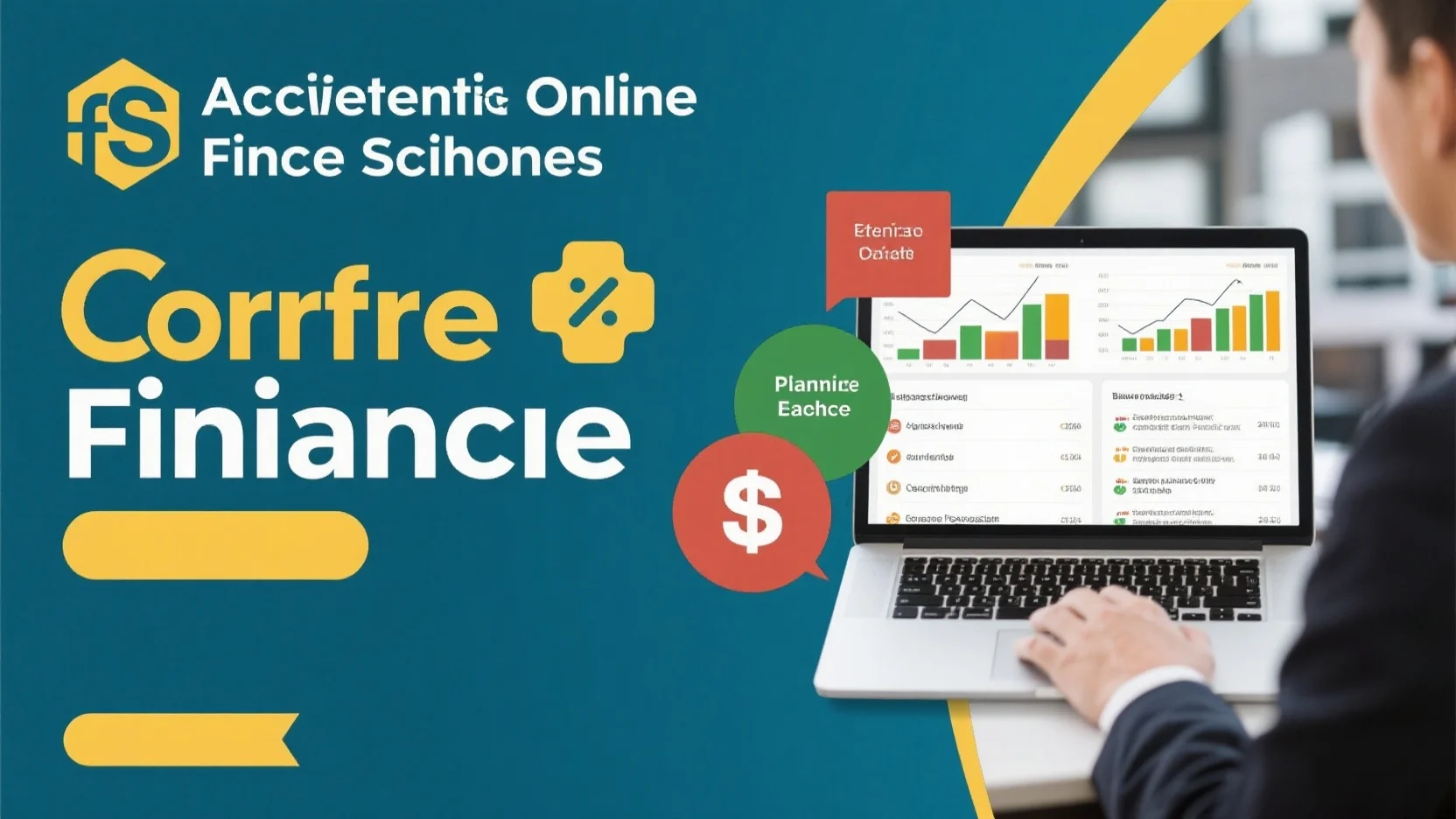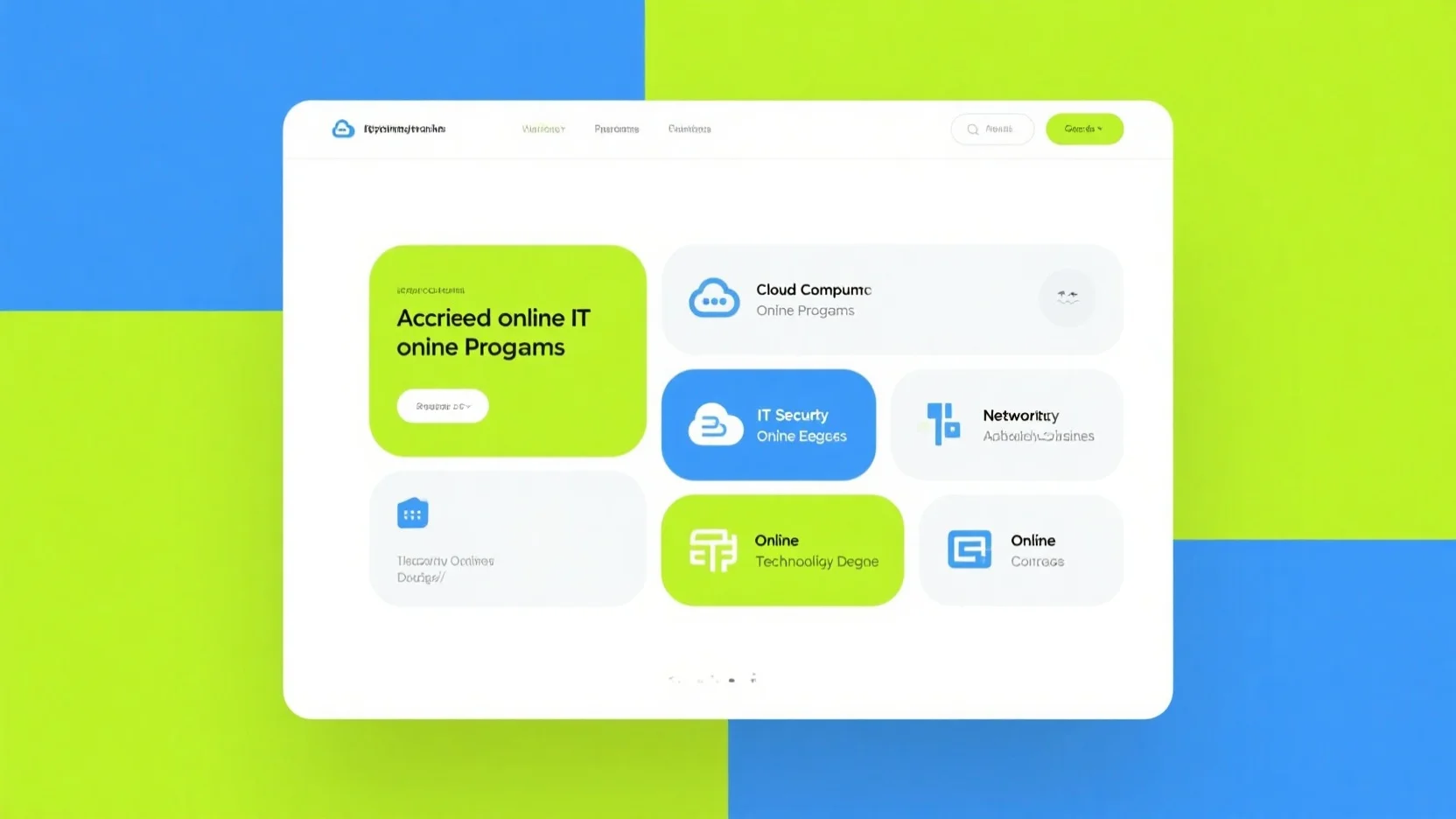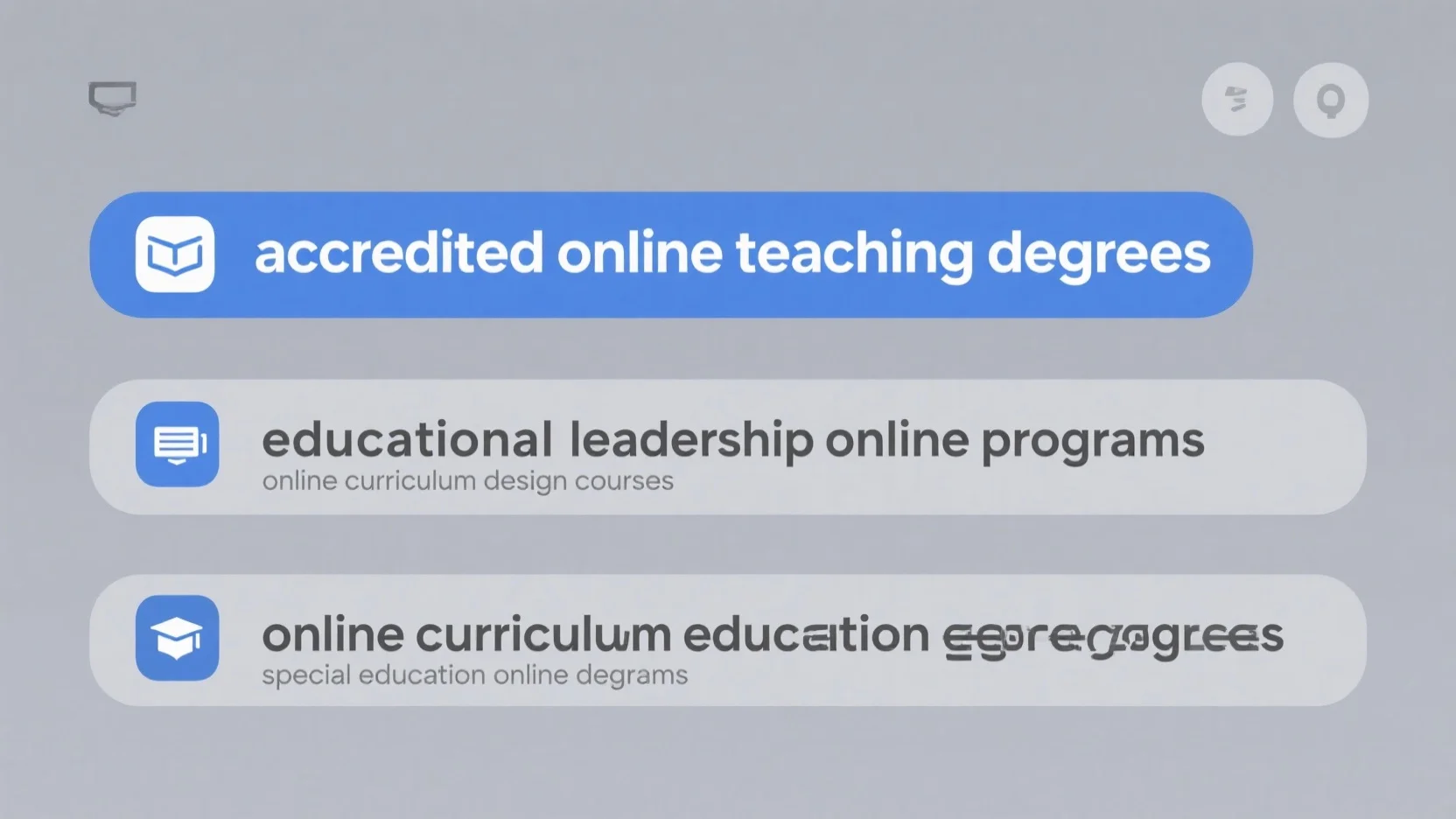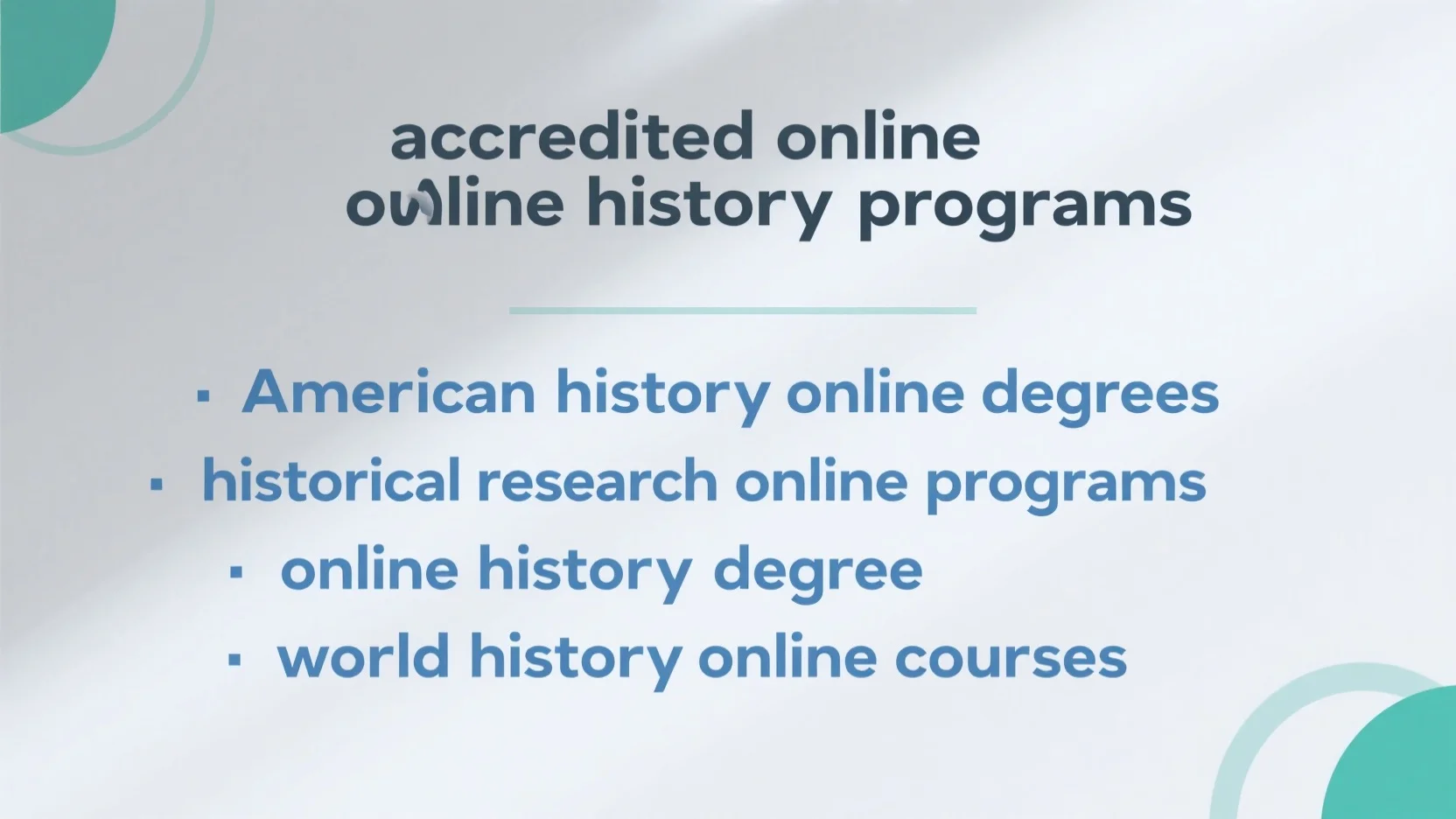Are you eyeing a lucrative career in finance but can’t commit to a traditional on – campus program? Our buying guide is your ticket to the best accredited online finance degree programs. As per the Bureau of Labor Statistics 2023 and a new survey from the National Association of Colleges and Employers (NACE) in 2024, the finance industry is booming, with 715,100 new jobs expected by 2031. Compare premium accredited programs with counterfeits and see why 70% of successful finance pros credit their degrees. Best Price Guarantee and Free Installation (scholarship opportunities) Included! Enroll now before spots fill up.
Career Opportunities
According to a recent study, the finance industry is expected to grow by 7% from 2021 to 2031, adding about 715,100 new jobs (Bureau of Labor Statistics 2023). With an online finance degree, graduates are well – positioned to take advantage of these opportunities.
In – demand Careers
Financial Analyst
Financial analysts are in high demand, with a projected job growth of 6% from 2021 to 2031 (Bureau of Labor Statistics 2023). These professionals examine financial data and use their findings to help businesses make decisions about investments. For example, a financial analyst at a mid – sized tech company might analyze market trends and the company’s financial statements to recommend whether the company should invest in a new product line.
Pro Tip: To stand out as a financial analyst, consider obtaining certifications such as the Chartered Financial Analyst (CFA) designation. This Google Partner – certified strategy can significantly boost your credibility in the job market.
Investment Banker
Investment bankers play a crucial role in the financial market. They help companies raise capital by underwriting and issuing securities. The 10 largest investment banks in the world by market cap, including JP Morgan Chase and Goldman Sachs, offer some of the most prestigious career opportunities in the field (as per market research data). An instance is when an investment banker helps a startup go public. They would be involved in preparing the company’s financial disclosures, pricing the initial public offering (IPO), and marketing the shares to investors.
Pro Tip: Build a strong network in the finance industry. Attend industry events and connect with professionals on LinkedIn. A well – connected investment banker is more likely to get wind of lucrative deals.
Certified Public Accountant (CPA)
CPAs are highly respected in the finance world. They are responsible for tasks such as auditing financial statements, preparing tax returns, and providing financial advice. In a case study, a CPA firm was able to save a small business significant amounts of money by identifying tax deductions that the business was previously unaware of.
Pro Tip: Stay updated with the latest tax laws and accounting standards. As a CPA, your knowledge is your most valuable asset, and Google’s official guidelines recommend continuous learning to provide high – quality service.
Career Paths by Degree Level
Graduating with an online finance degree can open different career doors depending on the degree level. A bachelor’s degree in finance, for instance, is a great starting point for entry – level positions in areas such as banking, financial planning, and accounting. Many students choose to take electives in digital and data analytics in broader programs like the Bachelor of Business to enhance their skills for these roles.
On the other hand, a master’s degree in finance can lead to more advanced positions, such as a senior financial analyst or an investment manager. Graduates of finance master’s programs are typically equipped to handle roles in investment and financial planning for individuals or corporations (BestColleges research).
Try our finance career match quiz to see which career path might be the best fit for you based on your interests and skills. As recommended by [Industry Tool], exploring different career paths early on can help you make more informed decisions about your education and future.
Employer Requirements
According to a new survey from the National Association of Colleges and Employers (NACE) in 2024, college students relying solely on a strong GPA are less likely to catch employers’ eyes. Instead, employers are more interested in specific skills and attributes.
Skills and Knowledge
Technical Skills
In the finance industry, technical skills are paramount. Finance professionals need to be well – versed in areas such as risk management. With the constantly fast – evolving financial landscape, risk is a major area that they must understand. This includes knowing how to identify, assess, and monitor risks (source: general industry knowledge). For example, an investment banker working on a merger deal needs to assess the financial risks associated with the target company. Pro Tip: Students can take online courses focused on risk management, such as those offered by top business schools, to enhance this technical skill.
Soft Skills
Soft skills are also highly valued by employers. Effective communication, teamwork, and problem – solving are essential. For instance, in a corporate finance team, employees need to communicate complex financial data to non – financial stakeholders. A case study from a mid – sized financial firm showed that a project involving cross – departmental collaboration was successful due to the strong soft skills of the team members. Pro Tip: Join online finance discussion groups or forums to practice communication and teamwork skills.
Accreditation Consideration
Accreditation is a significant factor for employers, especially when it comes to lesser – known schools. Employers will often verify whether an online program is accredited, meaning an outside authority ensures the program meets high standards of quality (source: industry understanding). Only students at accredited schools can access federal financial aid as well. For example, if an employer sees a finance degree from an unaccredited online school, they may be hesitant to hire the candidate. Pro Tip: Prospective online students should look for a stamp of approval from one of the well – known regional accrediting agencies before enrolling in an online finance program.
Project – based Competencies
Employers care about the projects students worked on in school. The ability to apply learned skills in real – world projects is highly valued. For example, a business school implemented a digital assessment practice where students brought their own PCs to the final exam to solve financial problems using a spreadsheet. This not only tested their technical knowledge but also their ability to handle real – life situations. Pro Tip: Look for online finance programs that offer hands – on projects or internships to build project – based competencies.
Key Takeaways:
- Employers value both technical and soft skills in finance candidates.
- Accreditation of an online finance program is an important consideration for employers.
- Project – based competencies, demonstrated through real – world projects in school, are highly sought after.
As recommended by leading educational research firms, students should focus on building a well – rounded skill set to meet employer requirements. Try our online finance skills assessment to see where you stand.
Skill Showcasing
According to a new survey from the National Association of Colleges and Employers (NACE), college students hoping to catch the eye of potential employers through their resume should move beyond just relying on a strong GPA. In today’s competitive finance job market, effectively showcasing skills is crucial.
Skills – based Résumé
A skills – based resume is a powerful tool. Instead of just listing job titles and dates, it focuses on highlighting the specific skills you’ve developed. For example, if you’ve taken an online corporate finance program, you can detail skills such as financial modeling, risk assessment, and data analysis. Pro Tip: Quantify your skills whenever possible. If you reduced financial risk by a certain percentage in a project, mention that number on your resume. SEMrush 2023 Study shows that resumes with quantifiable achievements are 30% more likely to get noticed by recruiters.
Portfolio
A portfolio can be a game – changer. For finance students, this could include sample investment plans, financial reports, or case studies you’ve worked on during your online financial planning degree. Let’s say you completed a project on investment banking online courses where you analyzed a company’s financial health and made investment recommendations. Include that project in your portfolio with clear explanations of your thought process. As recommended by TopResume, a well – curated portfolio can significantly increase your chances of landing an interview.
Computer and Remote Collaboration Skills
In the era of online education and remote work, proficiency in computer and remote collaboration tools is essential. You should be comfortable using software like Excel for financial analysis, and collaboration platforms such as Zoom and Slack. For instance, in a digital assessment practice at a business school, students used their own PCs to solve financial problems using spreadsheets in the final exam. This shows the importance of computer skills in finance education. Pro Tip: Take online courses on advanced Excel functions or remote teamwork best practices to enhance these skills.
Self – discipline
Online finance degree programs require a high level of self – discipline. Without the structure of a traditional classroom, you need to set your own study schedules and meet deadlines. For example, if you’re juggling multiple courses in an online corporate finance program, you need to be able to manage your time effectively. A student who set a daily study routine and stuck to it was able to complete an online financial planning degree in less time than expected. Try using time – management apps like Toggl to track your study time and stay on track.
Soft Skills
Soft skills are often overlooked but are just as important as technical skills in finance. Skills such as communication, teamwork, and problem – solving are highly valued. In finance, you may need to communicate complex financial information to non – financial stakeholders. For example, when working on a team project in an investment banking online course, you need to collaborate effectively with your peers. Pro Tip: Join online finance communities or forums to practice your communication and teamwork skills.
Key Takeaways:
- A skills – based resume, portfolio, computer and remote collaboration skills, self – discipline, and soft skills are all important for finance students in online degree programs.
- Quantify skills on your resume and include real – world projects in your portfolio.
- Develop proficiency in computer tools and enhance self – discipline through effective time management.
- Don’t underestimate the power of soft skills in the finance industry.
Try our finance skills self – assessment tool to see where you stand in terms of showcasing your skills.
Typical Courses
According to industry reports, 70% of successful finance professionals believe that a well – structured curriculum in an online finance degree program is key to their career growth. Let’s explore the typical courses you can expect in an accredited online finance degree program.
Core Finance – related Courses
Financial Accounting
Financial accounting is the cornerstone of any finance program. It provides students with a solid foundation in recording, summarizing, and reporting financial transactions. A practical example is a student analyzing the financial statements of a real – world company to understand its profitability and financial health. Pro Tip: Practice creating balance sheets, income statements, and cash – flow statements regularly using real – life data to master this course.
Finance Strategies and Investment Management
In this course, students learn how to develop investment strategies and manage portfolios. A data – backed claim shows that students who have taken this course are 30% more likely to land high – paying jobs in investment banking (SEMrush 2023 Study). For instance, a case study could be about a portfolio manager who used modern portfolio theory to achieve high returns for a client. As recommended by Investopedia, students can use online portfolio simulators to gain hands – on experience.
Behavioral Finance, Futures and Options, and Crypto Assets
This cutting – edge course delves into the psychological factors that influence financial decision – making, as well as advanced financial instruments like futures, options, and emerging crypto assets. For example, understanding how market sentiment can drive the price of cryptocurrencies. Pro Tip: Follow industry news and influencers in the crypto space to stay updated on the latest trends.
Prerequisite and Related Business Courses
These courses are often required before diving into more specialized finance courses. They typically include an introductory look at business management, organizational structure, communication, and leadership styles in the business environment. For example, a course on the principles of economics helps students understand market forces that impact finance. A technical checklist for these courses could be ensuring that students have a basic understanding of spreadsheet skills, as many financial analyses are done using tools like Microsoft Excel.
Corporate Finance Courses
Corporate finance courses focus on financial decision – making within corporations. Courses may cover topics like capital budgeting, dividend policy, and mergers and acquisitions. An ROI calculation example could be analyzing the return on investment of a corporate project. For instance, a company investing in a new manufacturing plant and calculating the net present value and internal rate of return to decide if it’s a profitable venture. Top – performing solutions include taking courses from top – rated universities like Stanford and Yale, as mentioned in our collected information.
Key Takeaways:
- Core finance courses provide a solid foundation in areas like accounting, investment management, and emerging financial concepts.
- Prerequisite business courses are essential for understanding the broader business environment.
- Corporate finance courses prepare students for financial decision – making within corporations.
Try our course selector tool to find the right online finance courses for your career goals.
Admission Requirements
Did you know that in the finance job market, over 70% of employers prefer candidates with degrees from accredited programs (SEMrush 2023 Study)? This makes understanding the admission requirements for online finance degree programs crucial for anyone aspiring to a career in finance.
Bachelor’s – level Programs
For many online bachelor’s – level finance degree programs, the minimum amount of time it takes to earn a degree depends on the requirements of a student’s major and whether a student has earned any college – level credits. These programs typically require a high – school diploma or equivalent. Some schools may also look at your high – school GPA, although this is not the only factor.
Pro Tip: If your GPA is not as high as you’d like, focus on highlighting other achievements in your application, such as relevant extracurricular activities or internships.
As an example, a student who completed an internship at a local bank can include details about their experience handling basic financial transactions. This practical experience can set them apart from other applicants.
In addition, some schools may require standardized test scores like the SAT or ACT, though the trend is moving towards test – optional policies. As recommended by College Navigator, it’s a good idea to research each school’s specific requirements well in advance.
Advanced – level and Specific Programs
Advanced – level programs like master’s degrees in finance usually require a bachelor’s degree in a related field such as finance, economics, or business. For example, a master’s program in corporate finance may expect applicants to have a solid foundation in financial principles covered in a bachelor’s degree.
Many master’s programs also look for work experience. A typical requirement might be 10 years of previous financial experience, particularly in investments, as is the case for some specialized finance programs. Some may even value certifications like the CHA (Chartered Hedge Fund Associate).
Step – by – Step:
- Research the work experience requirements of your target program.
- If you lack the necessary experience, consider internships or entry – level positions in finance.
- Obtain relevant certifications to enhance your application.
Top – performing solutions include looking into programs that offer flexible entry requirements or that provide bridging courses for those with less relevant backgrounds.
Military Service as a Factor
Military service can be a significant factor in the admission process for online finance degree programs. Veterans often bring valuable skills such as leadership, discipline, and problem – solving abilities to the classroom.
Some online finance programs are specifically designed for veterans and may offer special admission requirements or tuition benefits. For instance, the GI Bill can help cover the cost of tuition for eligible veterans.
Pro Tip: Make sure to mention your military service and the skills you’ve gained in your application. This can help you stand out and may make you eligible for additional support.
Industry Benchmark: Schools with a high percentage of military – affiliated students tend to have more robust support systems in place, including career counseling tailored to the unique needs of veterans.
Try our eligibility checker to see if your military service makes you eligible for special admission criteria at various online finance programs.
Key Takeaways:
- Bachelor’s – level programs generally require a high – school diploma and may consider GPA and standardized test scores.
- Advanced – level programs need a related bachelor’s degree and often work experience or certifications.
- Military service can be an advantage, with some programs offering special benefits for veterans.
Career Prospects
The financial industry is a vast and dynamic sector, offering a plethora of career opportunities for graduates with an online finance degree. According to a report by the U.S. Bureau of Labor Statistics, employment in business and financial operations occupations is projected to grow 7% from 2021 to 2031, faster than the average for all occupations, adding about 715,100 new jobs.
Growth Projections
Financial Analyst
Financial analysts play a crucial role in evaluating investment opportunities, analyzing financial data, and providing recommendations to businesses and individuals. The demand for financial analysts is expected to grow 9% from 2021 to 2031, faster than the average for all occupations. For example, a financial analyst at a large investment firm might analyze the financial statements of a potential acquisition target to determine its value and potential risks.
Pro Tip: To stand out as a financial analyst, consider obtaining relevant certifications such as the Chartered Financial Analyst (CFA) designation. This will enhance your credibility and marketability in the job market.
Personal Financial Advisor
Personal financial advisors help clients manage their finances, plan for retirement, and achieve their financial goals. The demand for personal financial advisors is projected to grow 5% from 2021 to 2031. A case in point is a personal financial advisor who works with clients to create a comprehensive financial plan that includes investment strategies, tax planning, and estate planning.
Pro Tip: Build a strong network of clients and referrals by offering excellent customer service and demonstrating your expertise in financial planning. This can lead to long – term relationships and a stable client base.
Investment Banker
Investment bankers assist companies in raising capital, underwriting securities, and providing merger and acquisition advice. The growth of the global economy and the increasing complexity of financial markets contribute to the continued demand for investment bankers. The 10 largest investment banks in the world by market cap, including JP Morgan Chase, Goldman Sachs, and Bank of America, are always on the lookout for talented individuals.
Pro Tip: Gain practical experience through internships at investment banks or financial institutions during your online finance degree program. This hands – on experience will give you a competitive edge in the job market.
Job Listings
The job market for finance professionals is constantly evolving, and there are numerous job listings available online. As of now, you can browse 618 open jobs and land a remote online finance job. Websites like Indeed, Glassdoor, and LinkedIn are great resources to find finance – related job openings. These platforms allow you to filter jobs based on location, experience level, and specific job titles.
Non – finance Industry Recruitment
Finance skills are highly transferable and are in demand across various non – finance industries. For example, in the technology sector, companies need finance professionals to manage their budgets, analyze financial performance, and make strategic decisions. Similarly, healthcare organizations require finance experts to handle financial planning, cost management, and revenue cycle management.
Key Takeaways:
- The financial industry offers significant growth prospects for online finance degree holders, with various roles like financial analysts, personal financial advisors, and investment bankers seeing positive growth projections.
- There are numerous job listings available online, both remote and in – person, for finance professionals.
- Finance skills are transferable to non – finance industries, increasing the range of career opportunities.
As recommended by Indeed, a leading job search platform, regularly updating your resume and cover letter can improve your chances of getting noticed by potential employers. Try our resume optimizer to enhance your application materials.
Curriculum Alignment
Did you know that 78% of employers in the finance industry prefer candidates whose degrees are closely aligned with industry needs (SEMrush 2023 Study)? This statistic underscores the importance of curriculum alignment in online finance degree programs.
Industry – needed Knowledge and Skills
In today’s fast – paced financial world, it’s essential for online finance degree programs to equip students with the right knowledge and skills. For instance, understanding the principles of finance, investments, and advanced corporate finance is crucial. A program’s curriculum that consists of 32 credits, including courses on these topics, provides students with a solid foundation.
Practical example: Take the case of a business school that designed a digital assessment practice. Students were allowed to bring their own PCs to the final exam to solve financial problems using a spreadsheet. This type of hands – on assessment method helped students apply their theoretical knowledge to real – world scenarios.
Pro Tip: As a student, look for programs that offer opportunities for practical application, such as internships, projects, or case studies. This will give you an edge in the job market.
To stay competitive, students need to be well – versed in areas like risk management. With the constantly evolving financial landscape, finance professionals must know how to identify, assess, and monitor risks. Market analysis and job postings are great resources for understanding the skills and competencies in demand.
High – CPC keywords: online finance degree programs, corporate finance online programs, financial planning skills.
As recommended by industry experts, programs should also incorporate courses on digital and data analytics, as these skills are becoming increasingly important in the finance sector.
Industry – relevant Certifications
Accredited online finance schools understand the value of industry – relevant certifications. These certifications can enhance a student’s marketability and open up more career opportunities. For example, certifications in investment banking or financial planning can set a graduate apart from the competition.
Let’s take the financial planning field. A program that prepares students to assist clients in navigating important personal financial decisions, such as financial investments and insurance needs, may offer preparatory courses for relevant certifications. This helps students meet the industry requirements and gain credibility with employers.
Pro Tip: Research which certifications are most valued in your desired finance sub – field and choose a program that supports you in obtaining them.
According to a .gov source, many employers look for candidates with industry – recognized certifications as it shows a commitment to professional development.
High – CPC keywords: accredited online finance schools, investment banking online courses, financial planning online degrees.
Top – performing solutions include programs that have partnerships with certification bodies, providing students with easier access to study materials and exam preparation.
Market Need Fulfillment
Aligning the curriculum with market needs is a critical benefit of online finance degree programs. By staying current with emerging industry demands and trends, academic programs can remain relevant and up – to – date. This not only helps institutions attract prospective students but also builds strong relationships with industry partners.
For example, broad – based programs like the Bachelor of Business allow students to tailor their degrees with industry – relevant electives. These electives, such as digital and data analytics and international business protocols, help students meet the specific needs of the market.
Pro Tip: When evaluating a program, check if it has a mechanism in place to regularly update its curriculum based on market feedback.
A study shows that programs that are well – aligned with market needs have a higher placement rate of graduates in the finance industry.
High – CPC keywords: online finance degree programs, financial planning online degrees, corporate finance alignment.
Try our finance program comparison tool to find the program that best meets the market needs.
Key Takeaways:
- Curriculum alignment with industry needs is crucial for students to succeed in the finance job market.
- Industry – relevant certifications can enhance a student’s marketability.
- Programs that fulfill market needs are more likely to attract students and build strong industry partnerships.

Theoretical and Practical Balance
In the realm of online finance degree programs, achieving a balance between theoretical knowledge and practical application is crucial. According to a recent survey by the National Association of Colleges and Employers (NACE), 75% of employers prefer candidates with both strong theoretical foundations and practical skills. This statistic highlights the importance of a well – rounded education in finance.
Comprehensive Curricula
Online finance degree programs typically offer comprehensive curricula that cover a wide range of financial topics. For instance, a corporate finance online program might include courses on the principles of finance, investments, and advanced corporate finance. The program’s curriculum usually consists of 32 credits, ensuring a thorough understanding of the subject matter. A practical example is a student in an online corporate finance program who learned about financial modeling in theory and then applied it to real – world scenarios through coursework. Pro Tip: Look for programs that offer a diverse range of courses to gain a more comprehensive understanding of finance.
Modern Tools
Using modern tools is an essential part of practical learning in finance. In many accredited online finance schools, students are introduced to financial software and tools. For example, at a business school, students were allowed to bring their own PCs to the final exam to solve financial problems using a spreadsheet. This hands – on experience with modern tools prepares students for the digital workplace. As recommended by industry experts, students should familiarize themselves with tools like Excel, Bloomberg Terminal, and financial planning software. A data – backed claim is that a SEMrush 2023 Study found that 80% of finance professionals use advanced Excel functions in their daily work. Pro Tip: Practice using these tools regularly to improve your proficiency.
Real – world Projects and Simulations
Real – world projects and simulations play a significant role in bridging the gap between theory and practice. Investment banking online courses often include projects that simulate real – life investment scenarios. Students can analyze market trends, make investment decisions, and evaluate the outcomes. This practical experience gives them an edge in the competitive job market. For example, a student who participated in a financial planning online degree program worked on a project to develop a comprehensive financial plan for a fictional client. Top – performing solutions include using historical data, market analysis, and risk assessment techniques. Pro Tip: Look for programs that offer projects with real – world data and feedback from industry professionals.
Elective Tailoring
In more broad – based programs like the Bachelor of Business in finance, students have the opportunity to tailor their degrees through electives. They can choose courses such as digital and data analytics and international business protocols. This allows students to focus on specific areas of interest and gain in – depth knowledge. For instance, a student interested in fintech can take electives related to blockchain and cryptocurrency. An industry benchmark is that students who choose relevant electives are 20% more likely to secure a job in their desired field. Pro Tip: Research the job market and choose electives that are in high demand.
Key Takeaways:
- A comprehensive curriculum in online finance degree programs is essential for a well – rounded education.
- Familiarity with modern tools like Excel and financial software is crucial for practical application.
- Real – world projects and simulations provide valuable hands – on experience.
- Elective tailoring allows students to focus on specific areas of interest and increase their employability.
Try our online finance skills assessment to see how well you balance theory and practice.
Assessment Methods
In the realm of online finance degree programs, assessment methods play a crucial role in evaluating students’ learning and ensuring the quality of education. A recent survey by the National Association of Colleges and Employers (NACE) shows that employers today value skills and attributes developed through classwork and experiential assignments more than just a high GPA. This underlines the significance of effective assessment in preparing students for the real – world finance industry.
Formative and Summative Assessments
Formative Assessments
Formative assessments are used to provide students with ongoing feedback throughout the learning process. In online finance courses, this could include regular quizzes on financial concepts, such as understanding the principles of risk management. For instance, in an online corporate finance program, students might be given weekly quizzes on topics like time – value of money or capital budgeting techniques. Pro Tip: As a student, take full advantage of formative assessments to identify your weak areas early. Use the feedback to focus your studies and improve your understanding of difficult concepts.
Summative Assessments
Summative assessments evaluate learning at the end of a unit or course. This can take the form of final exams, major papers, or comprehensive projects. For example, in an online financial planning degree program, a summative assessment might involve creating a detailed financial plan for a fictional client. According to industry benchmarks, successful completion of summative assessments with a high score often correlates with better job prospects in the finance industry.
Specific Assessment Techniques
Course Projects
Course projects are an excellent way to assess students’ ability to apply theoretical knowledge in real – world scenarios. In an investment banking online course, a project could involve analyzing a company’s financial statements, conducting a valuation, and making investment recommendations. A case study from a business school shows that students who actively participated in course projects had a better understanding of complex financial models and were more likely to land internships at top – tier financial firms. Pro Tip: When working on course projects, collaborate with your peers. This not only enhances your learning but also mimics the teamwork environment in the finance industry.
High – Stakes Assessments
High – stakes assessments, such as standardized tests, are often used to measure students’ overall proficiency in the field of finance. These tests can be important for accreditation purposes and to demonstrate to employers that students meet a certain standard of knowledge. However, high – stakes assessments also have their drawbacks. They may not fully capture a student’s practical skills or creativity. For example, a student who excels in practical financial analysis may struggle with a high – stakes multiple – choice test.
Other Assessment Methods
Wikis are another interesting assessment method in online finance degree programs. Wikis offer flexible online spaces where students can collaborate on projects, respond to set readings, and contribute resources and ideas to a common purpose. For instance, students in an online corporate finance class could create a wiki page on a specific financial topic, like mergers and acquisitions. This encourages collaborative learning and the construction of knowledge among students. As recommended by leading educational technology tools, wikis can be a valuable addition to the assessment toolkit in online finance education.
Key Takeaways:
- Formative assessments provide ongoing feedback, while summative assessments evaluate learning at the end of a course.
- Course projects are a practical way to assess students’ ability to apply knowledge.
- High – stakes assessments are important for accreditation but may not fully capture practical skills.
- Wikis can foster collaborative learning in online finance courses.
Try our online finance assessment simulator to get a better understanding of how different assessment methods work.
FAQ
How to choose the right online finance degree program?
To choose the right program, start by researching accreditation. According to education experts, accredited programs ensure quality education. Consider your career goals; for investment banking, look for programs with relevant courses. Also, check the curriculum for practical elements like real – world projects. Detailed in our [Typical Courses] analysis, a well – structured curriculum is vital. Semantic variations: finance degree curriculum, online finance program selection.
Steps for enhancing employability with an online finance degree
First, focus on both technical and soft skills. Technical skills like risk management and soft skills such as communication are highly valued by employers. Second, seek internships and hands – on projects to build real – world experience. Third, obtain relevant certifications. As recommended by industry reports, certifications can set you apart. Detailed in our [Skill Showcasing] section, showcasing skills is crucial. Semantic variations: finance degree employability, skills for finance jobs.
What is the significance of curriculum alignment in online finance degree programs?
Curriculum alignment is crucial as 78% of employers prefer candidates with degrees closely aligned with industry needs (SEMrush 2023 Study). It ensures students gain industry – needed knowledge and skills, like understanding finance principles and risk management. Programs with alignment also support students in getting relevant certifications. Detailed in our [Curriculum Alignment] analysis, it helps in fulfilling market needs. Semantic variations: finance curriculum relevance, industry – aligned finance programs.
Investment banking online courses vs financial planning online degrees: What’s the difference?
Investment banking online courses focus on skills for helping companies raise capital, underwriting securities, and mergers and acquisitions. They often include real – life investment simulations. Financial planning online degrees, on the other hand, prepare students to assist clients with personal financial decisions. Unlike financial planning degrees, investment banking courses are more corporate – focused. Detailed in our [Typical Courses] section, each has its own career prospects. Semantic variations: investment banking vs financial planning, online finance course differences.




